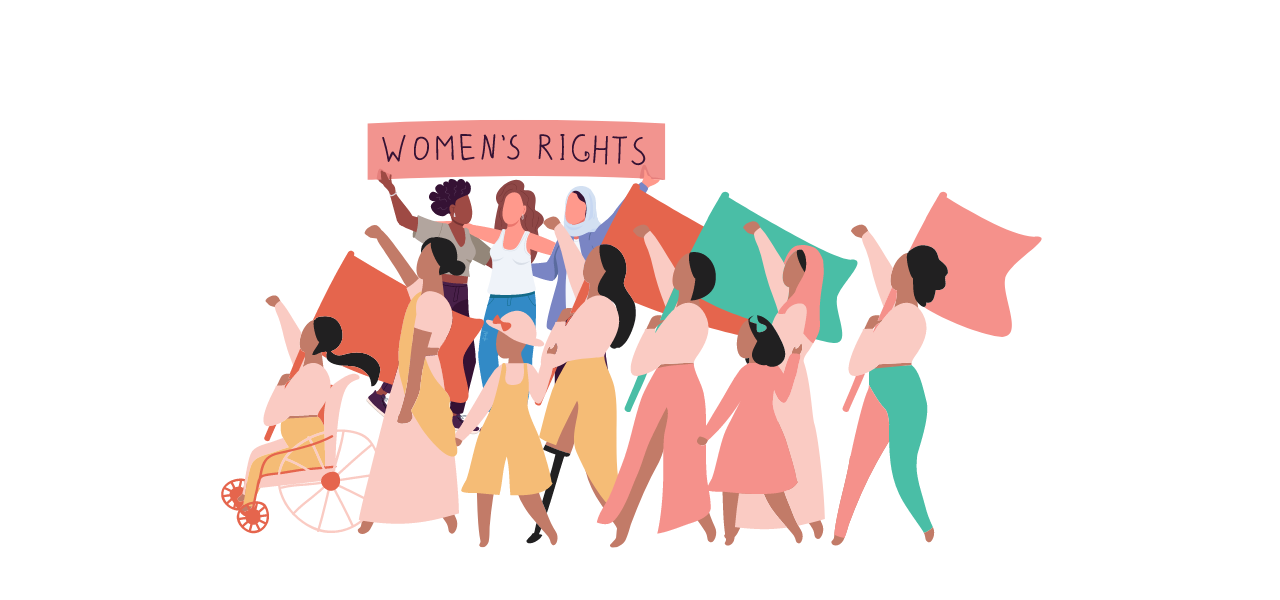By: Dewi Raudlatul Jannah
Murders against women continue to occur in many communities. The perpetrators vary, but shockingly, the majority of them are individuals close to us: lovers, husbands, brothers, and even parents.
On the one hand, the news gives information about current events; nonetheless, I believe that media coverage of violence and death has a traumatic effect. Anxiety and worry come, and they cannot be ignored. As a woman, and presumably many other women, I feel afraid not only in public places but also (much more so) in domestic spaces.
Recently, the public was shocked by the murder and rape of a girl selling fried food in Padang Pariaman, West Sumatra. The perpetrator was not a stranger, but her own neighbor.
A similar case was experienced by a five-year-old girl with her face covered with duct tape on Cihara Beach, Lebak, Banten. There were five perpetrators, and all of them have reportedly been arrested.
In addition, a 13-year-old girl was murdered and raped in Palembang. The offenders were four of her own friends. According to Kompas.com, the criminals were proud and told others about their deeds.
In other news, a member of the Singkawang Regional People’s Representative Council (DPRD) from the PKS party became a suspect in a case of raping a 13-year-old child.
Why do these acts of violence specifically target women? Why are there more femicide instances every day? Diana H. Russell, an American researcher, defined femicide as a murder perpetrated by men against women just because they are women.
Feminicide, according to the National Commission on Violence Against Women (Komnas Perempuan), is the murder of women committed directly or indirectly because of their gender and as a result of the escalation of gender-based violence motivated by jealousy, conquest, power relations, and sadistic satisfaction toward women. Femicide is extreme violence against women and children.
According to data, 95 femicide cases occurred in 2020. In 2021, it grew by 237 instances. It reached 307 cases in 2022. While in 2023, there were 159 cases. Incidents of violence and femicide are like icebergs, appearing on the surface less than those buried deep beneath, implying that many incidents are not recorded or reported.
The growing number of cases of murder of women has elicited a variety of responses, including those from feminists. They trace the origins of the violence and identify several factors, the primary one being patriarchal culture.
In a patriarchal society, all violence is blamed primarily on women. When women face abuse, including murder, patriarchal society will quickly find ways to blame them. Women’s clothing, alluring bodies and appearances, or provocative words, for example, all contribute to violence.
From here, it is evident that violence does not occur in a vacuum but rather within a societal context that positions women in such a poor position. Feminists emphasize gender mainstreaming in response to women’s dehumanization. In practice, this can be accomplished by actively engaging women in a variety of public areas and social activities.
Islamic Perspective
So, how does Islam view this? Allah SWT created men and women equally, which serves as the foundation for the realization of human rights, or inherent fundamental rights. The rights to life, security, education, and health, and others. Of course, these rights are not limited to one gender but must be comprehensive in order to meet the needs of all human beings, men and women alike.
However, in practice, the realization of these rights cannot run equally; the social environment perceives one gender as superior and the other as inferior. Power relations that emerge, take root, and proliferate result in inequality and control over the weak. Women are still the victims in this relationship.
KH Husein Muhammad, a feminist kyai from Cirebon, explained: “Many people believe that oppression of women is a small issue that does not require debate, despite the fact that oppression of women is a major issue because women are members of humanity and the human species. The subordination and unfairness for women indicate that this is a major issue for humanity.”
Buya Husein’s statement demonstrates that society does not recognize the relevance of this issue to humanity. Our patriarchal society continues to foster sexist ideas that lead to violence, marginalization, subordination, stereotypes, double burdens, and other negative consequences.
For me, life as a woman constantly brings up the most fundamental problems of humanity: how can women seek happiness? How can women be themselves if their surroundings are so scary? Where can women live a safe life without assault or murder? How do women become subjects for themselves, actively moving in public areas that provide support, a positive atmosphere, healthy relationships, and a life of mutual love? If we consider Abraham Maslow’s hierarchy of requirements, we can see that each human being has a pyramid of needs. Starting with physiological needs, there is the need for a sense of security, social needs, the need for appreciation, and, finally, the desire for self-actualization. Then, as a woman, in the middle of patriarchal control, increasing femicide, and increasing hatred, I ask: How can all that happiness be achieved? []
This article was translated by Napol Riel.
